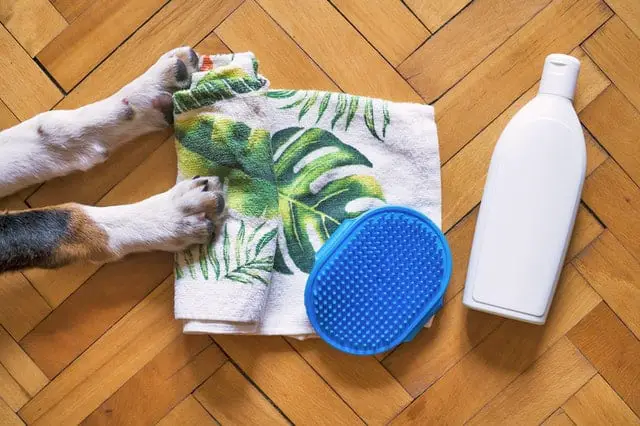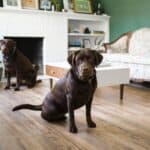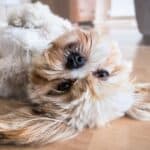
Living with a dog at home is an experience that can give you fun and tenderness. However, there are some aspects related to dog hygiene that can lead to serious problems if you do not know how to manage them with due regard. One of the crucial points regarding the attention that you must devote to your dog is undoubtedly cleaning: here are the guidelines for maintaining your dog’s hygiene at home.
Even before worrying about the order and the smell of your home, it is essential that you take care of keeping the hygiene of your four-legged friend under control , since negligence from this point of view can lead to problems even severe to the skin, eyes, ears or even internal organs. Keeping your dog clean is not such a difficult task and with the advice we suggest in this article it will be even easier for you!
General rules
Dogs need different spaces: a space to sleep, another to eat and, finally, another to do their business. As for its kennel, the ideal is that it is made of a material that is easy to wash and that does not favor the accumulation of dust and mites (therefore avoid carpets and the like).
Also avoid feeding your dog in the kitchen, looking for an alternative space where you can do it: this will help you to prevent the food from being contaminated by dog hair, saliva or urine .
Then remember that you must keep your dog clean but without exaggerating: excessive cleaning can cause as many health problems , such as a weakening of the layer of hair that protects the skin, an alteration of the pH, infections of the ear canal and allergies . In case you notice that your dog has a bad smell despite having taken a bath, it will be advisable to take him to the vet to find out the cause of the problem.
Keep your dog dry: this will prevent him from contracting infections, allergies, dermatitis or other diseases. So remember to dry your dog well, both after bathing him and after a walk in the rain. If by chance your pet has bathed in a swimming pool, we advise you to wash it further, instead of drying it directly, to remove the chlorine residues.
xxxx
Especially delicate areas
At the cost of being pedantic, we want to remind you that there are some parts of your four-legged friend’s body that require more attention from you; this is the case of the nails, for example, which must be cut periodically (you can do it yourself or take it to have them cut by a specialist): when they grow too much, in fact, they prevent your dog from moving easily or can even get stuck in the pads.
Dental care is also an important element in guaranteeing your dog a good quality of life. Therefore, you will need to keep an eye on his oral hygiene , thus avoiding chipping or loss of teeth, excessive accumulation of tartar or the development of gum and tongue diseases.
The careful cleaning of your hair will help your dog to ward off possible infection to the skin, as well as keep it away from the cold.
Even the paws can represent a hotbed of infections if they are not kept clean: the dog normally cleans them by licking himself, but you will have to help him if he cannot do it, perhaps because he is ill, or simply if he does not usually do it frequently. If your dog has played in the mud or stepped on some biodegradable substance (food, excrement, etc.), clean and dry the pads of his paws well.
The Poop
A dog should never be in contact with his own droppings or those of another animal , as feces are a vehicle for multiple bacteria that cause many diseases, not to mention the fact that being in constant contact with excrement is not only a risk. organic for your dog, but also for yourself.
We recommend that you get your dog used to doing his business outside the home, during the walk, taking care to collect his droppings to avoid contamination, bad smells and the spread of diseases. However, we recommend that you still offer your dog an alternative: a space at home where he can do his business whenever he feels the need but you cannot take him out. In these cases, you must remove the excrement as soon as possible and not allow your dog to walk or sleep in the same place intended for his needs.






